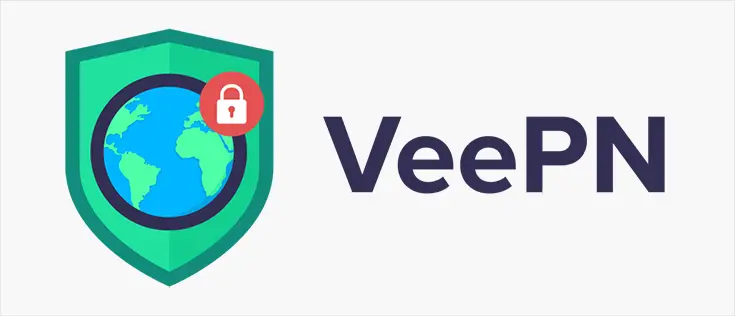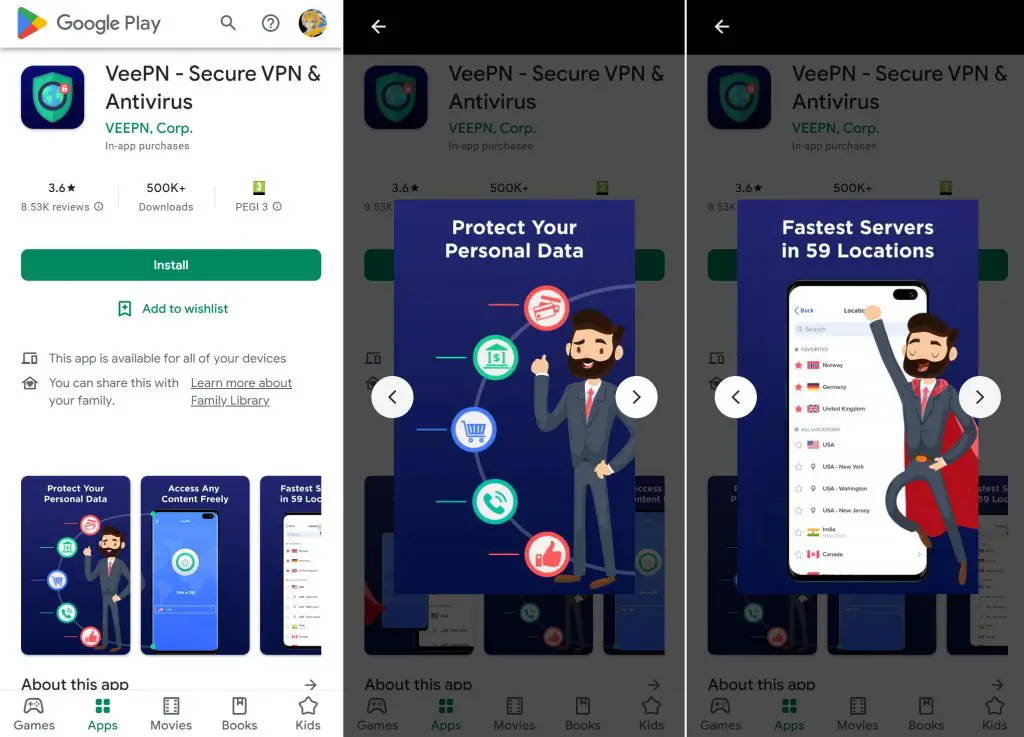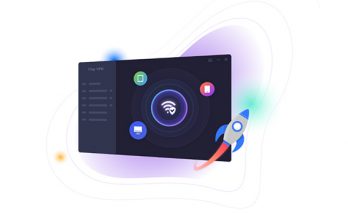Table of Contents
How many times have we talked about VPNs in this blog? If you're a seasoned reader, you most certainly know the answer: a lot of times. We explained what is a VPN (and why you should definitely get one) many times in the past, detailing the privacy and data security benefits it brings to our internet activities, including - yet not limited to - web surfing; benefits that the vast majority of internet users still need even in 2023, even if insecure WIFI networks and non-HTTPS websites are definitely less common these days.
This time we're going to introduce a new, interesting VPN service that caught our attention these days: it's called VeePN and it offers a native VPN client for a lot of supported platforms, including Windows, Linux, macOS, iOS, and Android. More specifically, we will focus on the VPN Client for Android, which currently has a whooping Trustpilot score of 4.9 out of 5 stars. Are we ready? Let's start!
What are the benefits of a VPN service?
Before digging into VeePN, it might be wise to spend a couple of minutes to understand the reason why we should invest some money in this kind of service. In a nutshell, A VPN (Virtual Private Network) service offers several benefits when it comes to surfing the web. Here are some of the key advantages:
- Enhanced Security. One of the primary benefits of using a VPN is the improved security it provides. When you connect to a VPN server, it encrypts your internet traffic and creates a secure tunnel between your device and the destination website or service. This encryption prevents hackers, government surveillance agencies, or other malicious actors from intercepting or monitoring your online activities.
- Privacy Protection. A VPN helps protect your online privacy by masking your IP address and location. Instead of using your actual IP address, the VPN assigns you a new IP address from its server network. This makes it difficult for websites, advertisers, or other entities to track your online behavior and gather personal information.
- Bypassing Geographical Restrictions. Many websites and online services implement geo-restrictions that limit access to specific regions or countries. With a VPN, you can overcome these restrictions by connecting to a server located in a different country. By doing so, you can effectively hide your true location and access content and services that may be otherwise unavailable in your region.
- Public Wi-Fi Security. When you connect to public Wi-Fi networks, such as those found in coffee shops, airports, or hotels, your online activities are vulnerable to hackers. These networks often lack proper security measures, making it easy for cybercriminals to intercept sensitive information. By using a VPN on public Wi-Fi, your data is encrypted, ensuring that even if someone tries to eavesdrop, they won't be able to decipher your information.
- Avoid Bandwidth Throttling. Internet service providers (ISPs) have been known to throttle or slow down certain types of internet traffic, such as video streaming or torrent downloads. By using a VPN, you can encrypt your traffic and make it difficult for your ISP to detect and throttle specific activities. This can help you maintain consistent internet speeds and bypass any unfair bandwidth restrictions imposed by your ISP.
- Anonymity. While a VPN doesn't provide complete anonymity, it adds an additional layer of anonymity to your online activities. By masking your IP address and encrypting your traffic, it becomes more challenging to trace your online actions back to your actual identity.
Choosing a good VPN provider
It's important to note that while VPNs offer various benefits, the choice of VPN provider is crucial. It's recommended to choose a reputable VPN service that prioritizes privacy, doesn't log user data, and has a wide server network for better performance.
Is VeePN a good choice for all that? Let's find out!
Downloading and installing
VeePN Client for Android can be installed easily from the Play Store: you just have to type "veepn" in the search bar, locate it, and click the Install button.
Once done, you'll be able to launch the app - and access the VeePN main dashboard - within a few seconds.
Test drive
The good thing about the VeePN Android app is that it's completely free to try for one week: this allowed us to properly test it in its various aspects.
User Interface & User Experience
In terms of appearance, everything looks fairly good: the interface is elegant and intuitive, with a look & feel of a native app. Features are where you'd expect them to be, making it easy to find what you're looking for.
The most important features of a VPN service - kill switch and split tunneling - are available. If you don't know what they are - and why they are crucial - don't worry: we'll briefly explain their meaning in the next sections!
Kill switch
The "kill switch" feature in a VPN service is a crucial component that helps protect your privacy and security by preventing accidental exposure of your internet traffic if the VPN connection drops or becomes unstable. It ensures that your online activities remain encrypted and anonymous, even in situations where the VPN connection is interrupted.
When you enable the kill switch feature, it actively monitors the status of your VPN connection. If it detects any disruptions or failures in the VPN connection, it takes immediate action to block all internet traffic from your device, effectively cutting off your internet connection until the VPN connection is restored.
Here's how the kill switch feature works:
- VPN Connection Monitoring. The kill switch constantly monitors the status of your VPN connection. It checks whether the VPN tunnel is established and functioning correctly.
- VPN Disconnection Detection. If the kill switch detects that the VPN connection has dropped or is no longer secure, it triggers a response to safeguard your privacy.
- Internet Traffic Block. Once the kill switch is activated, it instantly blocks all outgoing and incoming internet traffic from your device. This prevents any unencrypted data from being transmitted, ensuring that none of your online activities are exposed.
- VPN Connection Restoration. The kill switch remains active until the VPN connection is successfully reestablished. Once the VPN connection is restored, the kill switch allows the internet traffic to resume, ensuring that all traffic is securely routed through the VPN tunnel.
The kill switch feature is particularly important in situations where internet connections can be unstable, such as when switching between networks, experiencing network disruptions, or when your VPN connection encounters technical issues. It helps prevent any accidental exposure of your data, such as your IP address, browsing history, or other sensitive information, during these moments of vulnerability.
Split tunneling
The "split tunneling" feature in a VPN service allows you to selectively route your internet traffic through either the VPN connection or your regular (unencrypted) internet connection. It provides more control over which applications or services use the VPN tunnel and which ones directly access the internet.
With split tunneling enabled, you can define specific rules or settings that determine which traffic should go through the VPN and which traffic should bypass it. For example, you may want to route sensitive or privacy-sensitive traffic, such as online banking or accessing work-related resources, through the VPN for enhanced security. At the same time, you may want to allow certain applications or activities, like streaming services or gaming, to use your regular internet connection to avoid any potential slowdown caused by the VPN.
Here's how split tunneling works in practice:
- Applications or services that are configured to use the VPN. When you enable split tunneling, you can specify certain applications, websites, or IP addresses that should utilize the VPN connection. Any traffic generated by these selected resources will be encrypted and routed through the VPN tunnel, ensuring their security and privacy.
- Applications or services that bypass the VPN. Conversely, you can also specify certain applications or websites that should not use the VPN connection. Traffic generated by these resources will be sent directly through your regular internet connection, without being encrypted or routed through the VPN. This can be useful for activities that do not require the additional security provided by the VPN, or for applications that might be incompatible with the VPN connection.
Split tunneling provides flexibility and control over your VPN usage, allowing you to balance security and performance according to your specific needs. It enables you to prioritize certain traffic through the VPN while still accessing other resources directly, optimizing your internet connection for different purposes simultaneously.
Network
In the context of a VPN service, a "network" refers to the infrastructure of servers and locations that the VPN provider operates: in a nutshell, it consists of a distributed network of servers placed in various geographic locations around the world.
Having a good network is essential for a VPN service to provide a reliable and high-performance experience to its users. Here's a non-comprehensive list of its benefits:
- Server Availability. A VPN network with a wide array of servers ensures that users have numerous options to connect to. It allows users to choose from different locations and server configurations, providing flexibility and accommodating various needs, such as bypassing geo-restrictions or accessing content from specific regions.
- Reliability and Uptime. A robust VPN network minimizes the chances of server congestion or overcrowding. When a network has a sufficient number of servers, it helps distribute the user load, reducing the risk of performance issues and ensuring a stable and consistent connection. Additionally, having redundant servers and failover mechanisms in the network improves uptime, preventing disruptions and downtime.
- Performance and Speed. The quality and capacity of the VPN network can significantly impact the performance and speed of the VPN service. A well-designed network with strategically located servers can help reduce latency, improve data transfer rates, and minimize the impact of network congestion, resulting in faster and more responsive connections.
- Global Coverage. VPN networks with a global presence have servers in numerous countries, allowing users to virtually connect to different regions around the world. This global coverage is especially important for users who need to access location-specific content or services, or for those who want to maintain anonymity and bypass censorship or surveillance in their own country.
- Load Balancing and Optimization. A good VPN network incorporates load-balancing mechanisms to evenly distribute user traffic across multiple servers. Load balancing helps prevent any single server from becoming overwhelmed with user connections, ensuring optimal performance for all users. Additionally, network optimization techniques, such as intelligent routing algorithms, can help route traffic efficiently, minimizing latency and maximizing bandwidth.
- Privacy and Security. The network infrastructure plays a crucial role in ensuring the privacy and security of VPN users. A reputable VPN service will have a network that is designed to prioritize user privacy, with features like strong encryption protocols, secure server configurations, and a strict no-logs policy. The network should be built to resist attacks, prevent unauthorized access, and provide a secure environment for user data transmission.
Having a good network is fundamental for a VPN service to deliver a reliable, secure, and high-performance experience to its users. That's the reason why, when evaluating a VPN provider, it's important to consider the quality and coverage of their network, as it directly affects the overall functionality and effectiveness of the VPN service.
Luckily, VeePN comes with a good network, providing access to over 2,500 servers spread across 50 locations in 42 countries. That's not bad at all for its price level - as we'll see in a short while!
Performance
Let's now talk about the most important feature of all: performance! In a VPN service, performance mostly refers to the speed, latency, and overall responsiveness of the network connection when using the VPN. It is an essential aspect of a VPN service and holds significance for several reasons:
- Speed. VPN performance directly influences the speed at which data is transmitted between your device and the VPN server. A fast VPN connection ensures that your online activities, such as web browsing, streaming, file downloads, or online gaming, are not significantly slowed down by the VPN encryption and routing processes. With good performance, you can enjoy a seamless and smooth internet experience without noticeable delays or buffering.
- Bandwidth Usage. VPN performance affects how efficiently the available bandwidth is utilized. When a VPN service has optimized performance, it minimizes the impact on your internet connection's available bandwidth, ensuring that you can fully utilize your internet speed while maintaining the security and privacy benefits provided by the VPN.
- User Experience. A VPN with good performance contributes to a positive user experience. It reduces frustration caused by slow connection speeds or latency issues, allowing users to browse the web, stream media, and perform online tasks smoothly and efficiently. A seamless and responsive VPN connection enhances productivity, enjoyment, and convenience when using the internet.
- Streaming and Gaming. Performance is particularly crucial for streaming media and online gaming. Video streaming services require a stable and fast connection to deliver high-quality video content without buffering or interruptions. Similarly, online gamers rely on low latency and fast connections to ensure responsive gameplay. A VPN service with good performance can offer a seamless streaming and gaming experience, allowing users to enjoy their favorite content or play games without disruptions.
- Productivity and Work Efficiency. VPNs are commonly used for remote work, allowing employees to access company resources securely from anywhere. Reliable performance ensures that remote workers can efficiently collaborate, access files, and use business applications over the VPN connection, without experiencing delays or hindrances that may impact productivity.
- International Access. For users who rely on a VPN to access geo-restricted content or services, performance plays a crucial role. A VPN service with a well-optimized network and strategically located servers can minimize the impact of distance and provide faster access to content or services in different regions around the world.
In summary, performance is important in a VPN service as it directly affects the speed, reliability, and overall user experience.
How does VeePN fare in terms of performance? To properly test it, we tried to establish several different connections to random VPN servers in the US and Germany at various times of the day, using a 1GB/s connection from Italy, tracking both download and upload speed each time.
After 5 days of tests, we obtained the following results:
AVERAGE DOWNLOAD SPEED: 137 MB/s
AVERAGE UPLOAD SPEED: 9.6 MB/s
That's not bad at all, and more or less on par with the other VPN services we have tested in the past. Even the browsing experience while using the VPN client was good enough, with no connectivity issues, lag, or anything else.
Pricing and plans
As for the pricing, the best thing about VeePN for Android is that the service is completely free for one week: that's a great way to test it without spending a dime.
If you're happy with the results, you can extend the plan's duration in the following ways:
- 1 Month: $10.99 / month
- 1 Year: $5.83 / month
- 5 Years: $1.67 / month
The 5 years option is by far the most convenient one, as it offers a huge 85% discount on the monthly price. The service also features a 100% money-back guarantee, which can greatly help you if you want to revise your choice.
Conclusion
VeePN for Android is a good VPN client, providing good features, an average speed, and a satisfying server network. The thing we liked the most is the user-friendliness of the Android app, which is incredibly simple to use and understand. As for the price, the 5-year subscription is what makes it competitive if we compare it to the competitors, who are definitely more expensive than that.



